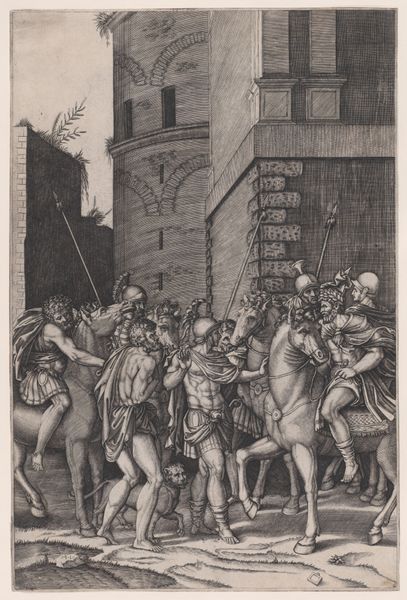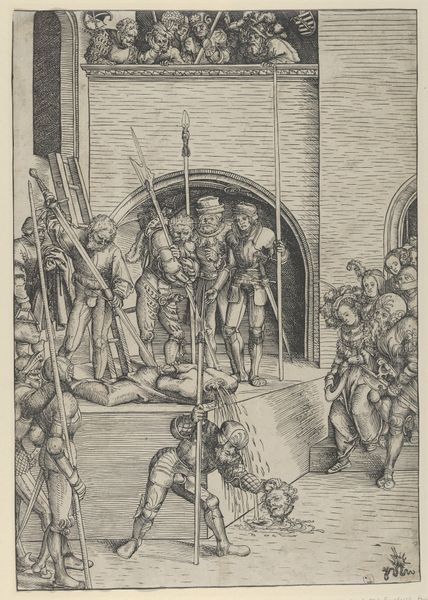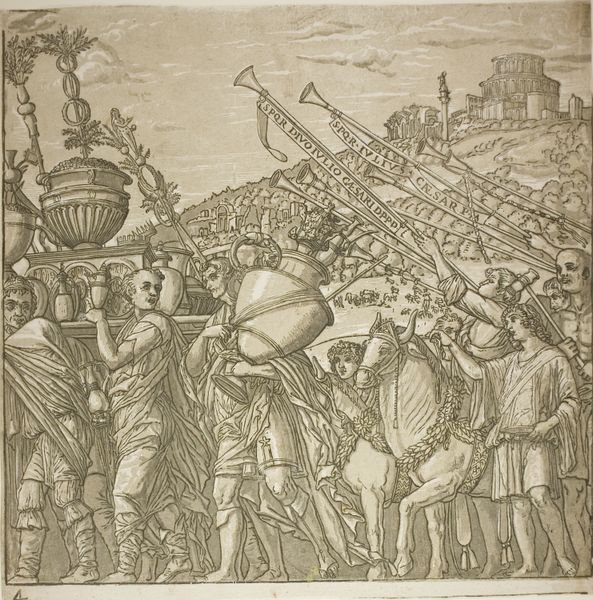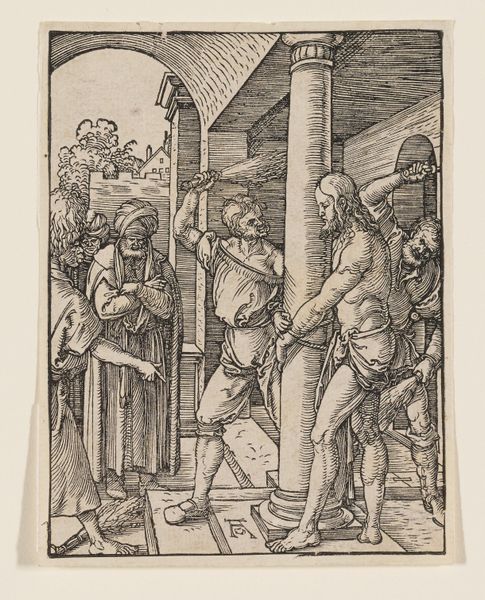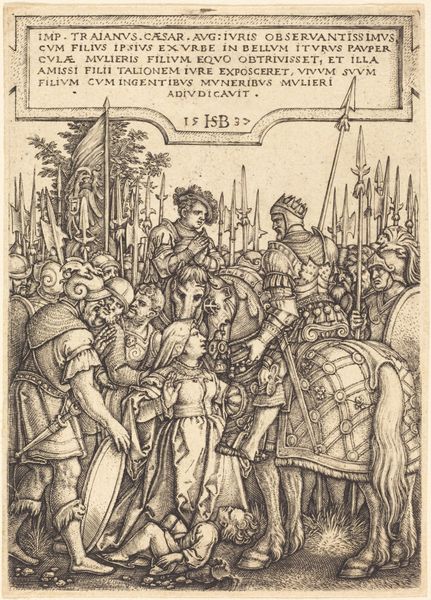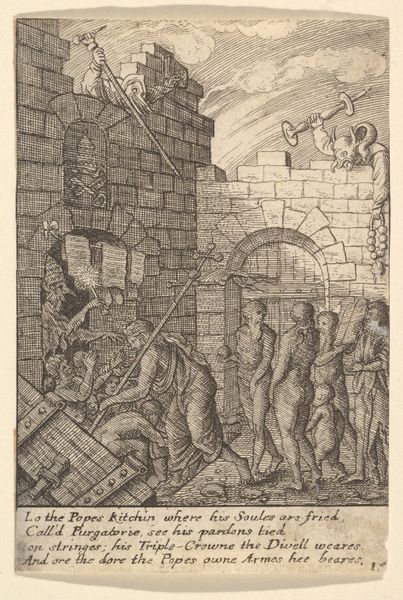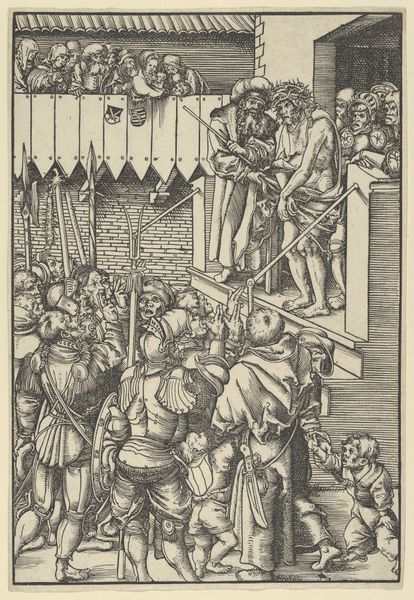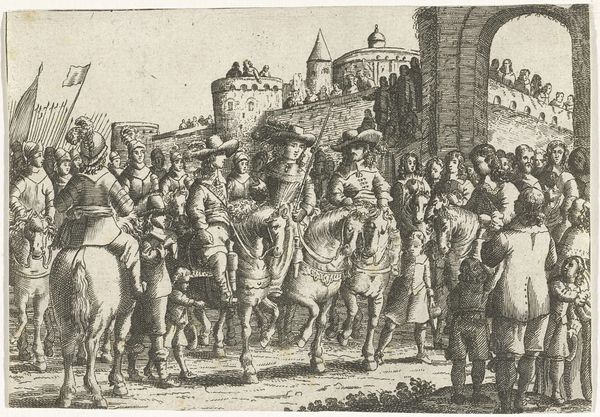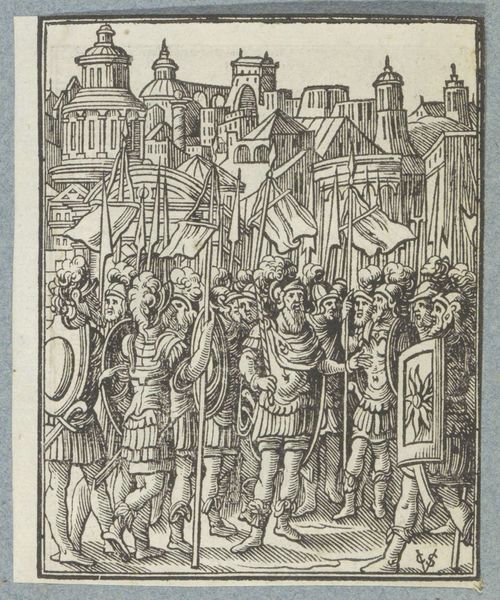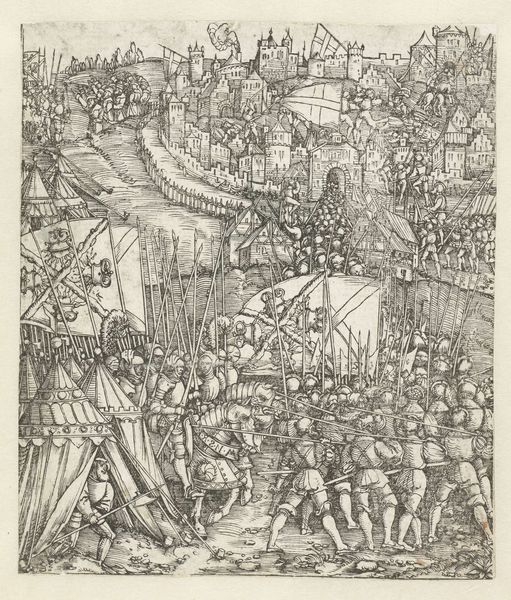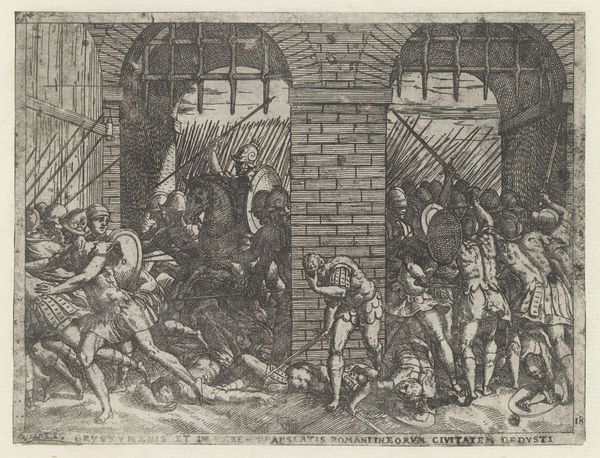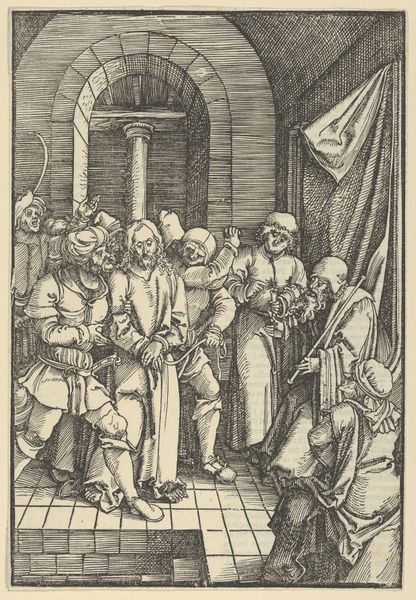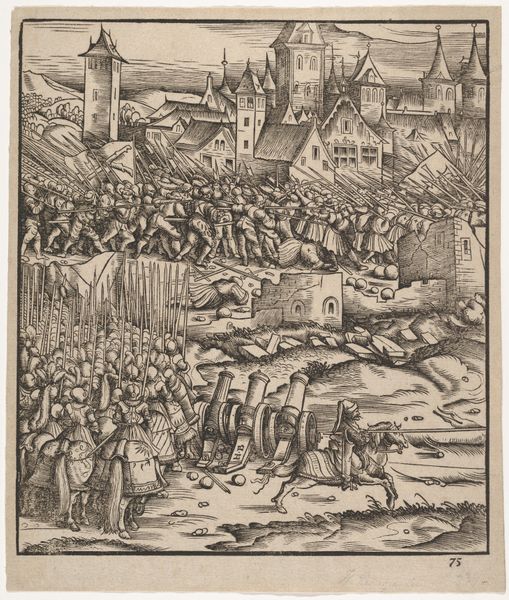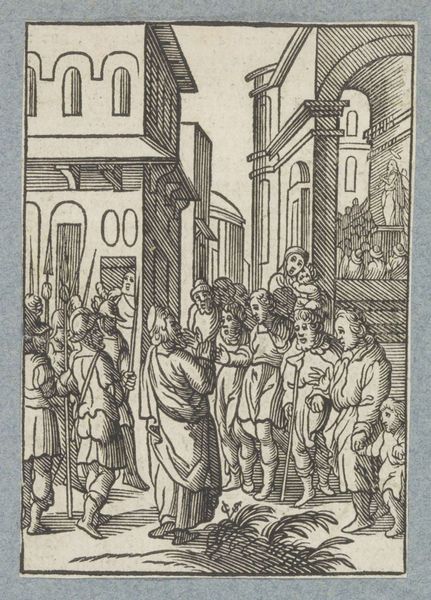
The Triumph of Caesar: the senators 1470 - 1525
0:00
0:00
drawing, print, engraving
#
portrait
#
drawing
# print
#
figuration
#
line
#
history-painting
#
italian-renaissance
#
engraving
Dimensions: Sheet (Trimmed): 10 15/16 × 10 1/2 in. (27.8 × 26.6 cm)
Copyright: Public Domain
Editor: So, here we have Giovanni Antonio da Brescia’s “The Triumph of Caesar: The Senators,” a print made sometime between 1470 and 1525. It's a striking image, quite linear, with lots of figures processing through an architectural space. What are your initial thoughts on the cultural and historical relevance of a piece like this? Curator: Well, considering the period, the Italian Renaissance, it’s interesting how this work reflects a growing interest in classical antiquity, specifically ancient Rome. The subject matter, a triumphal procession, immediately positions Caesar as a powerful political figure. But the focus on the senators gives it a layered meaning. Editor: Layered how? Curator: It brings into play questions of political authority and representation. Who is being celebrated here? Caesar or the Roman Republic itself? The senators embody the institutions of the Republic, yet they are participants in the triumph of a man who ultimately undermined it. Think about the role of imagery in constructing and reinforcing power dynamics, both then and now. Editor: That’s a great point. I hadn't thought of the senators’ presence as potentially ambivalent. The architecture itself—the arches, the towers—speaks to Roman grandeur. Do you think the choice of printmaking as a medium also plays into its historical role? Curator: Absolutely. Prints allowed for wider distribution of images, thereby democratizing access to this visual propaganda, if you will. It allows a greater populace to interpret the Roman idea of "Triumph." Do you notice how this plays into our understanding of societal influence? The creation of public perception became much more elaborate. Editor: I never really considered that aspect. So, looking at it now, the work becomes much more complex, it makes me reconsider a little. Curator: Exactly! And remember to keep asking yourself: who gets to tell the story, and who benefits from its telling?
Comments
No comments
Be the first to comment and join the conversation on the ultimate creative platform.
